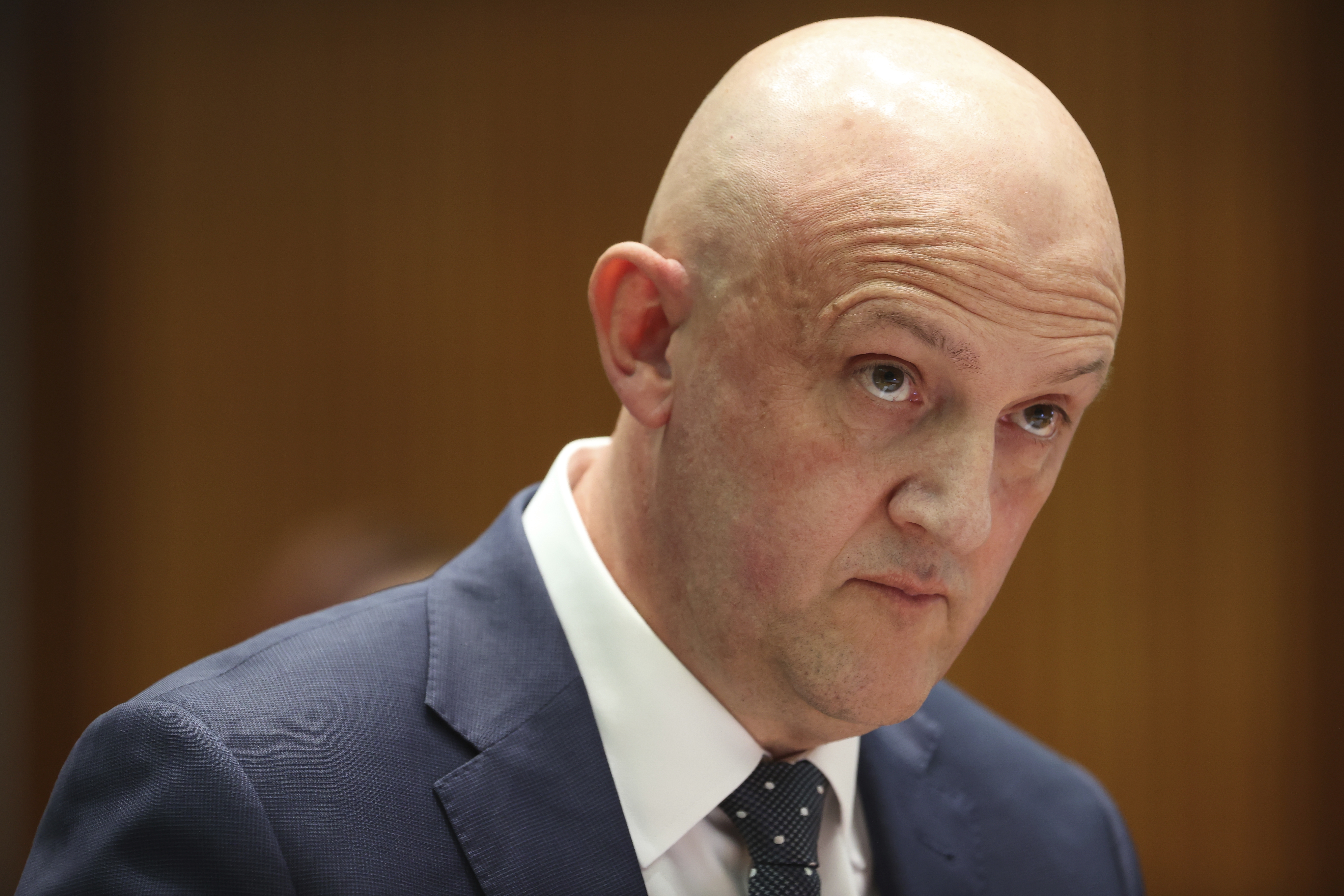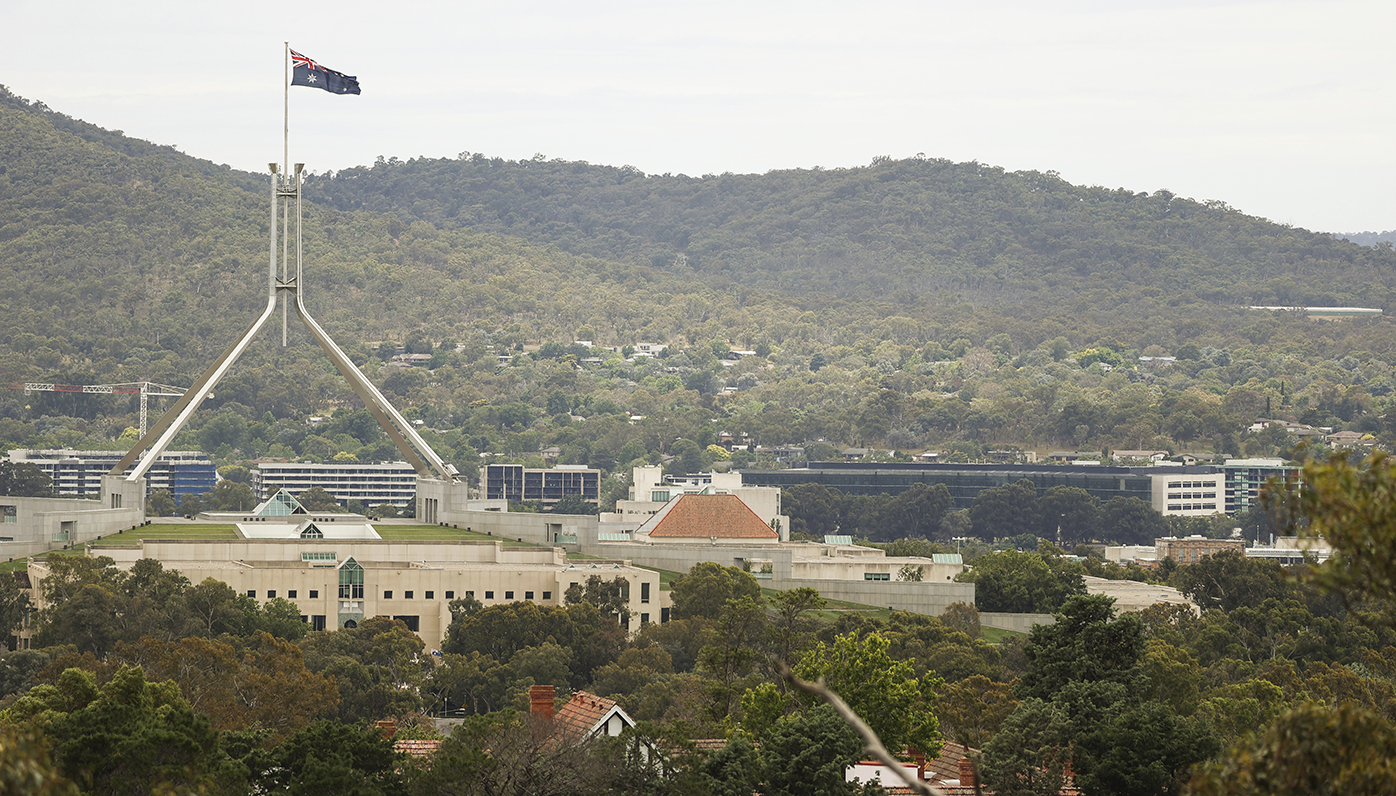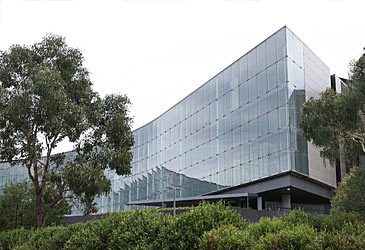A foreign government has been busted meddling in an Australian election, going as far as to identify potential political candidates in an operation costing hundreds of thousands of dollars, Australia's spy boss has warned.
The concerning development, said to have been blocked by the Australian Security Intelligence Organisation (ASIO), was just one of a host of threats laid out by ASIO director-general Mike Burgess on Wednesday night, from spies on Tinder to COVID-related extremism.
He said a wealthy individual — "the puppeteer" — with roots in Australia but ties to a foreign government and its spy services, hired someone for "foreign interference operations" and poured hundreds of thousands of dollars into an offshore bank account.
READ MORE: Sydney plumbers find $44m drug stash while fixing toilet

The spy boss did not reveal which election or jurisdiction had been targeted.
Working to "undermine Australia's sovereignty", the employee then looked for likely candidates who were friendly to the foreign power or seen as "vulnerable to inducements and cultivation".
"The employee used existing relationships with politicians, staffers and journalists to select potential targets, without revealing the secret intent, the foreign connection or the puppeteer's involvement," Mr Burgess said.
"The puppeteer and the employee plotted ways of advancing the candidates' political prospects through generous support, placing favourable stories in foreign language news platforms and providing other forms of assistance."
According to ASIO, the pair even looked into hiring political consultants, advertising agencies and PR specialists to help some of the candidates.
READ MORE: Cold front to slam into south-eastern Australia

"The aim was not just to get the candidates into positions of power, but also to generate a sense of appreciation, obligation and indebtedness that could subsequently be exploited," Mr Burgess told a gathering at the agency's Ben Chifley Building headquarters.
"The political candidates had no knowledge of the plot."
Mr Burgess, stressing that it was the "deliberate deceit and secrecy about the foreign government connection" that pushed the plot over the line from mere foreign influence to foreign interference, said ASIO acted to end the operation.
He painted the picture of an alternative ending in which some candidates were successful and later surrounded by other foreign agents working as political staffers who would try to influence them in favour of the foreign power and identify other targets.
"At some point, the politicians might be prevailed upon to vote a particular way on a contentious issue, or lobby colleagues to vote a certain way," Mr Burgess said, noting it was impossible to say what would have happened for sure.
READ MORE: How Tasmanian tiger's closest relative could help resurrect species

"I know that this is how it plays out because we've seen it happen in situations where we uncovered the foreign interference at a later stage.
"These cases are much more serious."
In a wide-ranging address, Mr Burgess said the pandemic had sent online extremism into "overdrive", sparking an increase in radicalisation.
He pointed to violent incidents at COVID-19 protests "fuelled by anti-vaccination, anti-lockdown and anti-government agendas", threats against public holders and physical assaults.
"We assess that these tensions and the associated possibility of violence will persist," he said.
The ASIO boss said children as young as 13 were embracing extremism of various kinds, with minors making up 15 per cent of new counter-terrorism investigations and more than half of the agency's highest-priority work.
But espionage and foreign interference threats were "outpacing" the threat from terrorism, and requiring more resources, Mr Burgess said, echoing his predecessor's 2019 comments.
"In some instances, espionage is conducted by countries we consider friends—friends with sharp elbows and voracious intelligence requirements," he said.
As recently as October, Mr Burgess had predicted espionage and foreign interference would become the greater threat in the coming years.
According to ASIO, thousands of Australians with access to sensitive information have been targeted online in the past two years on popular social media and messaging apps, but also dating platforms such as Tinder, Bumble and Hinge.
from 9News https://ift.tt/5Vr1e4T
February 09, 2022 at 09:17PM
https://ift.tt/5XBKz39
A foreign government has been busted meddling in an Australian election, going as far as to identify potential political candidates in an operation costing hundreds of thousands of dollars, Australia's spy boss has warned.
The concerning development, said to have been blocked by the Australian Security Intelligence Organisation (ASIO), was just one of a host of threats laid out by ASIO director-general Mike Burgess on Wednesday night, from spies on Tinder to COVID-related extremism.
He said a wealthy individual — "the puppeteer" — with roots in Australia but ties to a foreign government and its spy services, hired someone for "foreign interference operations" and poured hundreds of thousands of dollars into an offshore bank account.
READ MORE: Sydney plumbers find $44m drug stash while fixing toilet

The spy boss did not reveal which election or jurisdiction had been targeted.
Working to "undermine Australia's sovereignty", the employee then looked for likely candidates who were friendly to the foreign power or seen as "vulnerable to inducements and cultivation".
"The employee used existing relationships with politicians, staffers and journalists to select potential targets, without revealing the secret intent, the foreign connection or the puppeteer's involvement," Mr Burgess said.
"The puppeteer and the employee plotted ways of advancing the candidates' political prospects through generous support, placing favourable stories in foreign language news platforms and providing other forms of assistance."
According to ASIO, the pair even looked into hiring political consultants, advertising agencies and PR specialists to help some of the candidates.
READ MORE: Cold front to slam into south-eastern Australia

"The aim was not just to get the candidates into positions of power, but also to generate a sense of appreciation, obligation and indebtedness that could subsequently be exploited," Mr Burgess told a gathering at the agency's Ben Chifley Building headquarters.
"The political candidates had no knowledge of the plot."
Mr Burgess, stressing that it was the "deliberate deceit and secrecy about the foreign government connection" that pushed the plot over the line from mere foreign influence to foreign interference, said ASIO acted to end the operation.
He painted the picture of an alternative ending in which some candidates were successful and later surrounded by other foreign agents working as political staffers who would try to influence them in favour of the foreign power and identify other targets.
"At some point, the politicians might be prevailed upon to vote a particular way on a contentious issue, or lobby colleagues to vote a certain way," Mr Burgess said, noting it was impossible to say what would have happened for sure.
READ MORE: How Tasmanian tiger's closest relative could help resurrect species

"I know that this is how it plays out because we've seen it happen in situations where we uncovered the foreign interference at a later stage.
"These cases are much more serious."
In a wide-ranging address, Mr Burgess said the pandemic had sent online extremism into "overdrive", sparking an increase in radicalisation.
He pointed to violent incidents at COVID-19 protests "fuelled by anti-vaccination, anti-lockdown and anti-government agendas", threats against public holders and physical assaults.
"We assess that these tensions and the associated possibility of violence will persist," he said.
The ASIO boss said children as young as 13 were embracing extremism of various kinds, with minors making up 15 per cent of new counter-terrorism investigations and more than half of the agency's highest-priority work.
But espionage and foreign interference threats were "outpacing" the threat from terrorism, and requiring more resources, Mr Burgess said, echoing his predecessor's 2019 comments.
"In some instances, espionage is conducted by countries we consider friends—friends with sharp elbows and voracious intelligence requirements," he said.
As recently as October, Mr Burgess had predicted espionage and foreign interference would become the greater threat in the coming years.
According to ASIO, thousands of Australians with access to sensitive information have been targeted online in the past two years on popular social media and messaging apps, but also dating platforms such as Tinder, Bumble and Hinge.




